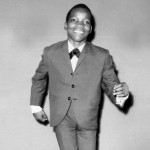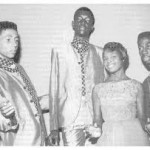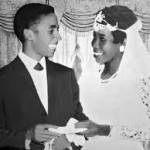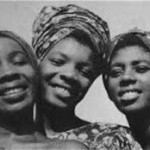One of the most commonly accepted inaccuracies in early Jamaican popular music is the story that legendary record producer Clement ‘Coxson’ Dodd’s voice appeared in only one recording.
So often we have heard on-air radio presenters, who we would expect to know better, referring to Delroy Wilson’s early 1960’s ska recording of King Pharaoh, as the only one in which Dodd’s voice is heard.
In the recording, the Studio 1 honcho is heard admonishing his arch-rival and former worker, Prince Buster, with the words:
“When I say get down, I mean get down, I have no use for you. Your father was King Pharaoh and you are Prince Pharaoh. You must go down as your father did go down. Go down and drop your crown”.
The recording came at a time when Dodd had just returned from one of his overseas trips to find the recording scene being taken over by Buster, who had parted ways with him in unceremonious fashion. In parting, Buster voiced his dissent in a recording, titled, One Hand Wash the Other, which prompted several Delroy Wilson responses, including King Pharaoh.

Dodd is better known for his shrewd production tactics that inspired hundreds of aspiring artists and produced scores of hit songs, but in an interview I had with him a couple years before his passing in 2004, he credited himself with other musical skills.
“I was one of the first rappers in Jamaican music, and I have rapped on about half a dozen recordings done by artists for Studio 1”, he asserted.
The Studio 1 boss seemed to be at his best as a rapper on a mid-1960’s Burning Spear track titled, Rocking Time. Before Burning Spear made their vocal entry, and with a rock rhythm in the background, Dodd had a rapping prelude with:
“Moses struck the rock and brought forth water.
I man open my mouth and bring to you another scorcher”.
Interchanging with Spears, Dodd continued to ride the rhythm throughout, with other peppy toasts like:
“Straighten up yourself, it’s rocking timemove, move, move your body line.
Rock it to me, sock it to me.
Move and groove, move baby move, rock your body line
Work up a heat, move your feet
It’s rocking time”.

Dodd’s voice can also be heard on The Skatalites’ instrumental recording, El Pussy Ska, in which Dodd introduces the recording with:
“Come on everyboys, let’s ska El Pussy Ska”.
But perhaps the biggest shock to many untaught music connoisseurs and presenters is to learn that Dodd, in fact, sang in a recording. Singing in duet with the keyboard maestro, Jackie Mittoo, and calling themselves, The Soul Agents the duo produced one of the most powerful rocksteady pieces to appear on the ‘Coxsone’ label Get Ready Rock Steady. Dodd featured prominently in the recording as the lyrics ran:
“Get ready to do rocksteady
get ready to do rocksteady.
Get in the mood, face your
partner
Move to the left, shake your
shoulder
Move to the right, rock your
hips.
Now jerk your body line
Rock your rocking time
Sock it to me, sock it to me, sock it to me”.

Accepted Inaccuracies

Another of the commonly accepted inaccuracies in early Jamaican popular music is the theory that Bob Marley and The Wailers began as a trio, consisting of Marley, Peter Tosh and Bunny Wailer.
Known originally as The Wailers, they were forced into becoming a trio about a year after their formation, after failing to find suitable replacements for Junior Brathwaite who left via the migration route, and Beverley Kelso for personal reasons. The quintet recorded four songs on their first outing at Studio 1 in late 1963, namely, I Don’t Need Your Love, How Many Times, Straight and Narrow Way and Simmer Down – the first to be recorded, and the group’s first hit.
The high-pitched falsettos of Brathwaite and Kelso, as demonstrated in Simmer Down, was crucial to the further advancement of the group as it gave them the sound they were looking for. Their departure therefore, dealt the group a severe blow, but they resorted to being a trio.
Kelso, in particular, was crucial to the group in more ways than one. She was like the confidant of the group members.

While in Jamaica for The Tributes to the Greats Awards Show in 2012, Kelso revealed to me in an interview, that when Marley was making his marriage vows, she was the only group member who knew. Also, she was largely responsible, albeit unwittingly, for the formation of the Marley Empire. How did she do this? The answer lies in a 2004 interview she did with Colby Graham for Vintage Boss magazine in which she stated:
“While going to studio from Trench Town, we usually take shortcut through Ninth Street and the Calvary Cemetery and pass by Rita’s house. She had a baby in her hand and usually wave at us. The others ignored her, but I felt bad as a woman and would stop to play with the baby. One afternoon she told me that she had a song, titled, Opportunity, which she wanted to record. I told Mr Dodd and he said I should bring her along. I rushed back to get her, but she was not ready as she had to find her backup singers. She later arrived at Studio 1 with Constantine Walker and a girl named Precious. Calling themselves The Soulettes, they recorded the song the following day”.

The Soulettes became a permanent fixture at Studio 1, with Rita Marley doing a few solo cuts. The arrival of Alpharita Constantia Anderson (as Rita was known then) at Studio 1
created the opportunity that cemented the relationship between her and Bob Marley, and all that followed.
Constantine Walker was called upon to fill a very important gap in the Wailers existence after Marley left for Delaware, U.S.A., in 1966 to spend time with his mother. The trio then of Walker, Tosh and Bunny Wailer recorded for Studio1, the transitional ska hits Dancing Shoes and What Am I To Do.



You must log in to post a comment.